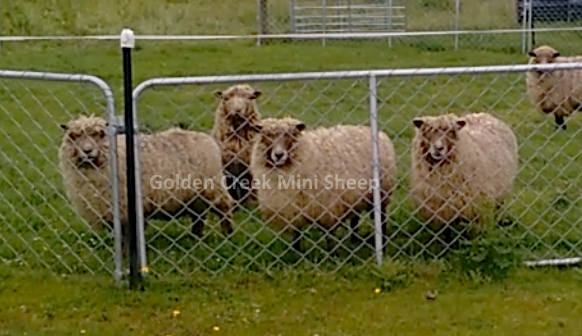The Benefits of Using Miniature Rams Over Normal-Sized Ewes
For lifestyle block owners and sheep farming in general, the choice of using miniature rams over normal-sized ewes presents several compelling advantages. From enhanced safety for handlers to improved breeding efficiencies and reduced resource requirements, miniature rams are a viable and attractive option for modern sheep farmers.
This article delves into the multifaceted benefits of incorporating miniature rams into breeding programs, highlighting their impact on safety, management, and overall farm productivity.
Safety Benefits for Human Handlers
One of the primary benefits of using miniature rams is the enhanced safety for human handlers. Handling livestock can be hazardous, and larger animals obviously pose a greater risk of injury. Most sheep farmers are aware of how very dangerous some rams can be. People can get badly hurt and even killed by rogue rams.
Using Miniature rams will massively reduce the likelihood of accidents, due to their smaller size and often more docile nature.

Here are several key safety advantages:
Lower Risk of Aggression: Rams can be aggressive and very dangerous, particularly during breeding seasons. Miniature rams, due to their smaller stature, are less intimidating and easier to manage, reducing the potential for dangerous encounters.
Reduced Physical Strain: Managing normal-sized ewes and rams can be physically demanding. Miniature rams are lighter and easier to control, minimizing the risk of musculoskeletal injuries to handlers.
Ease of Transport and Handling: Moving and restraining miniature rams is simpler and safer compared to their larger counterparts. This ease of handling decreases the risk of injury during transport and routine management tasks, such as drenching, vaccinations and hoof trimming.
Economic and Operational Benefits
Beyond the safety aspects, miniature rams offer several economic and operational benefits that can enhance the efficiency and sustainability of your lifestyle block operations.
Lower Feed and Space Requirements: Miniature rams consume less feed and require less space than normal-sized rams. This translates to significant cost savings in terms of feed, housing, and pasture management.
Efficient Breeding Programs: Miniature rams can be strategically used in breeding programs to produce smaller, more manageable offspring. This is particularly beneficial for farms focused on producing lambs for niche markets, such as petting zoos or small-scale fiber production.
Adaptability to Diverse Environments: Miniature rams and their offspring are often more adaptable to a variety of environments, including smaller farms and urban farming settings where space is limited. Their smaller size makes them ideal for these non-traditional farming contexts.
Environmental and Ethical Considerations
The use of miniature rams also aligns with growing environmental and ethical considerations in agriculture.
Reduced Environmental Footprint: Smaller livestock have a lower environmental impact, producing less methane and requiring fewer resources. This contributes to more sustainable farming practices and reduces the overall carbon footprint of livestock operations.
Ethical Animal Treatment: Managing miniature rams can lead to better animal welfare outcomes. Their smaller size makes it easier to provide appropriate care, reducing stress and improving overall health and well-being.
Compatibility with Organic and Small-Scale Farming: Miniature rams are well-suited for organic and small-scale farming systems, which prioritize sustainability and animal welfare. Their manageable size and reduced resource needs fit well with the principles of these farming models.
Read about using miniature sheep in orchards
Conclusion
Incorporating miniature rams into your lifestyle property offers numerous advantages that extend beyond safety for human handlers. From economic efficiencies and operational benefits to environmental sustainability and ethical considerations, miniature rams present a compelling case for modern livestock management. As the agricultural industry continues to evolve, the use of miniature rams could become an increasingly popular choice among farmers seeking to enhance safety, reduce costs, and promote sustainable farming practices.